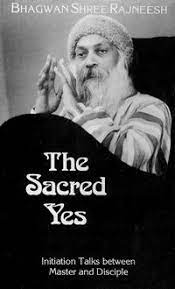Product Description
Veet means beyond, nastiko means no – beyond no-saying. The religions in the past have been
teaching people a kind of negative attitude. The old religions depend on the don’t: don’t do this,
don’t do that. Their whole approach is: How to negate life? They think that by negating life they will
be a coming closer to god, and that is just absurd. Life is god – to negate it is to negate god himself.
One needs a great yea-saying heart. And the yes has to be so total that it can contain the no in
itself. The light has to be so total that darkness becomes just a part in it. Life has to be so total
that death becomes just an episode in it. And when one can say the great yes to all that is – to the
darkness, to the light, to the agonies of life and to the ecstasies of life, to the body and to the soul,
to the earth and to the sky – when one can say yes to all that is, it becomes a sacred yes. And my
sannyas is based on the sacred yes. It is a totally new vision.
No has to be dissolved into yes. The old religions were somehow suicidal. They shrank peoples’
lives. They were escapist. They did not allow love, they did not allow relationship, they did not allow
the multiplicity and the richness of life to be lived, to be enjoyed, to be experienced. They taught
people to escape from life and its multiple experiences, to move to the monasteries, to renounce.
They were based on no.
Their whole philosophy is contained in no-saying, and the person who was very skilful in no-saying
became a great saint in their eyes. He was just a kind of masochist, he was neurotic, but because of
the philosophy of no, neurotics became saints; they were worshipped. They were slowly poisoning
themselves, because when you say no you poison yourself.
Yes is life-giving. And yes has not to be partial; it has to be total. Yes has not to be something
against the no, otherwise it will be partial. Yes has to be so huge that it contains the no in itself.










Reviews
There are no reviews yet.